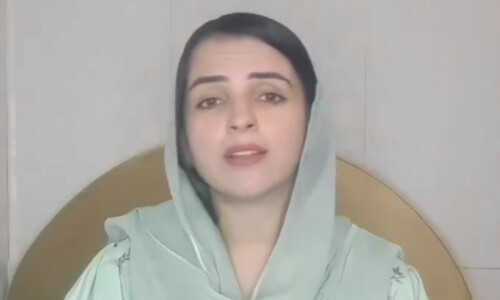ISLAMABAD, July 7: The government is considering broadening the consumption slab of lifeline electricity consumers from 50 units to 200 units a month to reduce economic shock to low-income groups when power subsidies are withdrawn.
However, electricity rates for poor consumers, frozen at Rs1.4 per unit for more than five years, will be increased significantly to partly compensate for the revenue loss. The decision is part of the tariff rationalisation for distribution companies.
The National Electric Power Regulatory Authority (Nepra) is currently hearing tariff petitions of distribution companies and is expected to give its determination this month.
The government has been under pressure from lending agencies to do away with cross subsidies for domestic consumers to cope with rising energy costs.
Last year, Nepra had recommended to increase electricity rates for lifeline consumers to Rs1.6 per unit but the government did not accept the recommendation, and instead granted a higher subsidy.
Sources said the fixed rate for lifeline consumers would be increased to well over Rs2 per unit.
There are more than 15 million domestic consumers and most of them consume less than 200 units a month.
Apart from the lifeline category, consumers of all distribution companies are charged at Rs3.08 a unit for the first 100 units and those using between 101 and 300 units are charged at Rs4.08.
Last year, Nepra had determined a maximum rate of Rs5.95 and Rs6.95 a unit tariff for the two categories of consumers of Hyderabad Electric Supply Company because of higher line losses. On the lower side, however, Nepra had suggested Rs2.65 and Rs3.64 per unit for first 100 and 101-300 units per month consumption for the consumers of the Islamabad Electric Supply Company. The government, however, allowed a uniform rate of Rs3.08 per unit and Rs4.08 per unit for all distribution companies across the country.
The distribution companies have sought about 30 per cent average increase in electricity rates on the plea that input costs, particularly oil prices, have more than tripled since the last tariff adjustment earlier this year.
Faced with declining foreign exchange reserves, the government has been negotiating with lending agencies to get fresh loans for the balance of payment support. The agencies, particularly the World Bank, have linked new programmes to replace cross subsidies with focussed subsidies for lower-income groups.














































Dear visitor, the comments section is undergoing an overhaul and will return soon.